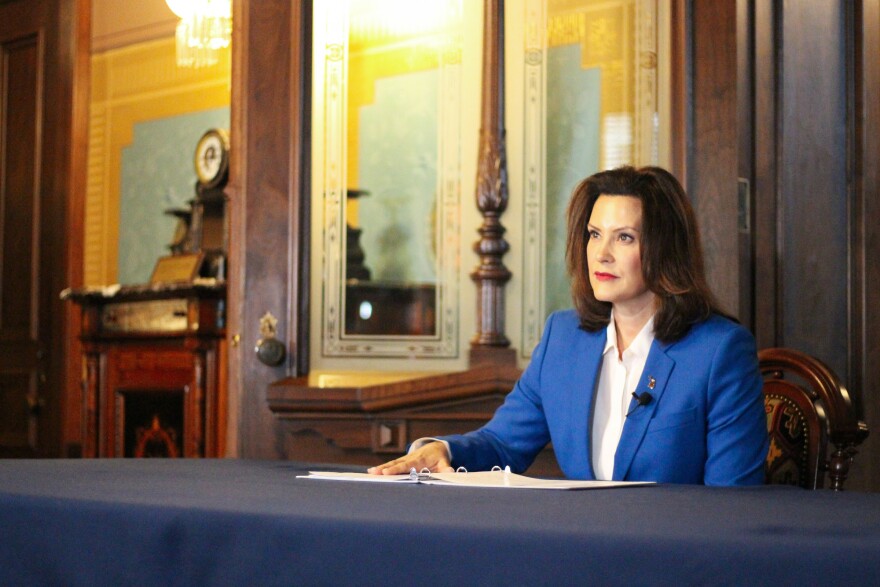State and federal authorities have charged a group of 13 suspected terrorists in an alleged plot to kidnap Governor Gretchen Whitmer and recruit militia members to storm the state Capitol.
Michigan Attorney General Dana Nessel and the FBI announced the charges Thursday. They say the men wanted to overthrow the state government and incite a civil war.
Authorities say some of the men first met at a gun rights demonstration in June at the state Capitol.
According to the indictments, a member of the conspiracy decided the plans had gone too far and became an informant. The conspiracy had reached the point of discussing an armed assault on the state Capitol before settling on kidnapping Whitmer from her northern Michigan vacation home, and taking her to a remote spot in Wisconsin to put her on trial for treason.
“Violence has been prevented today,” says Matthew Schneider, U.S. Attorney for the Eastern District of Michigan. “All of us in Michigan can disagree about politics, but those disagreements should never, ever amount to violence.”
Prosecutors say the men twice staked out the Whitmer family vacation home, and made plans to blow up a nearby bridge to divert law enforcement.
"All of us in Michigan can disagree about politics, but those disagreements should never, ever amount to violence." - Matthew Schneider, U.S. Attorney for the Eastern District of Michigan
The FBI’s Josh Hauxhurst say the group wanted to put its plan into action before the November election.
“Whenever extremists move into the realm of actually plotting or planning violent acts, the FBI’s Joint Terrorism Task Force stands ready to identify, disrupt, and dismantle those operations, preventing them from following through on those plans,” says Hauxhurst.
Law enforcement was also a target, he says, with the group compiling a list of names and home addresses of police officers.
The indictment says the conspirators often communicated using Facebook and encrypted messages.
Brian Levin directs the Center for the Study of Hate and Extremism at California State University, San Bernardino.
Levin says this is a dangerous moment with the controversies over COVID-19 restrictions, the gun rights movement, and the tinderbox of 2020 presidential politics. And he says social media – Facebook, in particular – makes it easier for white supremacists to find each other, but also for people who are discontented, with COVID restrictions, for example, to become radicalized.
“The ‘liberate’ movement, which is not a fringe movement per se, but does have a substantial number of conspiracists, and others, that can serve as a gathering place and then a conduit to radicalize others,” he says.
President Donald Trump’s rhetoric has spurred on these groups, Levin says, and Whitmer agrees. This is from a statement she released after the indictments were made public.
“Just last week, the President of the United States stood before the American people and refused to condemn white supremacists and hate groups like these two Michigan militia groups. Stand back and stand by, he told them. Stand back and stand by.”
In a statement, the White House said Whitmer is “sowing division.”
Attorney General Dana Nessel said the investigation is not over, and there could be more conspirators who have not yet been identified.





